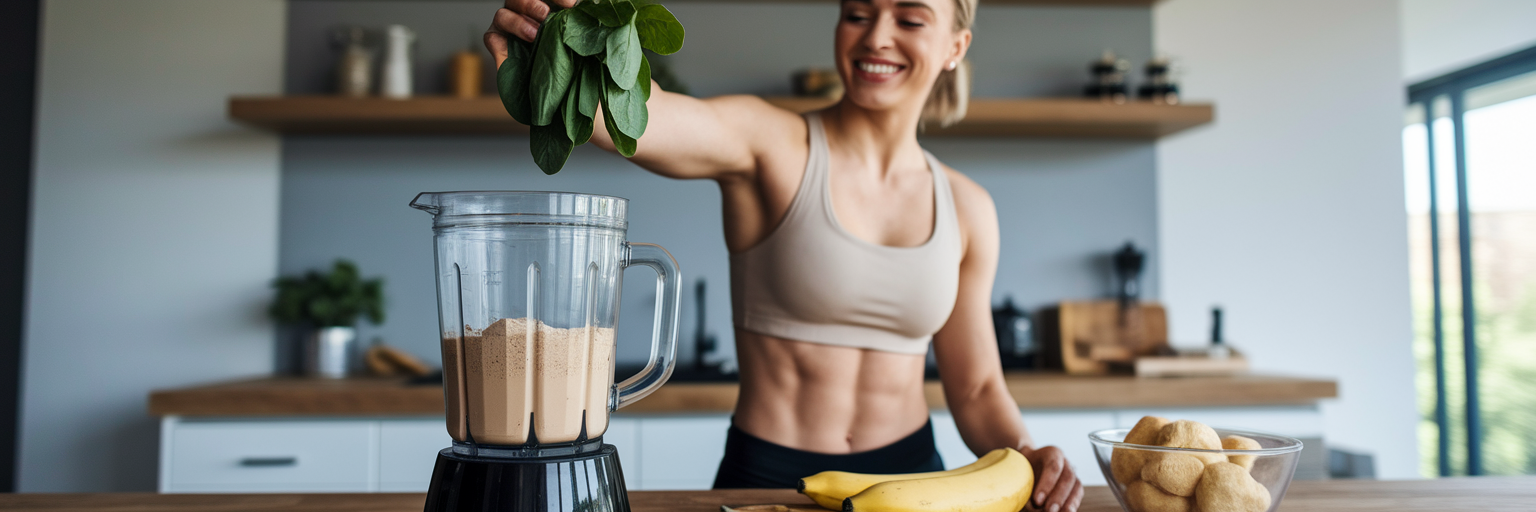The Link Between Your Fitness Routine and Hormonal Health
There's a familiar feeling for many active women: you hit a new personal best on your morning run, yet by afternoon, you're dealing with unexplained fatigue and moodiness. Or perhaps you're consistent with your workouts, but your cycle remains unpredictable. You feel strong on the outside, but internally, something feels off balance. This experience is incredibly common and points to a direct connection between physical activity and hormonal health.
While regular exercise is fantastic for your body, intense training is also a form of physical stress. This stress can prompt your body to produce more cortisol, a hormone that, when chronically elevated, can disrupt the delicate rhythm of estrogen and progesterone. It’s a frustrating paradox where the very thing you do to feel your best can leave you feeling out of sync.
The good news is that you have a powerful tool to help restore equilibrium: your nutrition. The choices you make at mealtime can either amplify that stress response or help your body manage it. Specifically, the type of protein you consume plays a significant role. Choosing the best protein for active women isn't about restriction; it's a proactive strategy to support your body from the inside out. Let's explore how the right plant-based protein can help you feel as good as your fitness achievements look.
Stabilizing Blood Sugar for Consistent Energy and Mood

Think of your energy levels like a rollercoaster. When you consume simple sugars or refined carbs, you get a quick, thrilling spike followed by a sudden crash. That crash doesn't just leave you feeling tired and irritable; it signals your body to release cortisol to manage the dip, creating more hormonal static. This cycle is particularly challenging for women, and managing it is a key consideration for conditions where hormonal sensitivity is a factor, which is why the conversation around plant protein and PCOS is growing.
Plant-based proteins work differently. Rich in fiber, they act more like a slow-release energy capsule than a jolt of sugar. This fiber slows down the absorption of glucose into your bloodstream, preventing those dramatic spikes and crashes. The result is steady, sustained energy that powers you through a workout and prevents that dreaded mid-afternoon slump. Your mood becomes more stable because you're not fighting off the effects of "hanger."
This high fiber content is a primary advantage over many animal-based proteins, which contain no fiber at all. Incorporating more of these sources is simple and delicious. Consider adding these high-fiber proteins to your diet:
- Lentil protein: Excellent in soups, salads, and plant-based burgers.
- Chickpea protein: The foundation for hummus, roasted snacks, and hearty curries.
- Pea protein: A common, easily digestible base for high-quality protein powders.
- Hemp protein: A nutty addition to smoothies and oatmeal, packed with healthy fats.
By focusing on these fiber-rich options, you give your body the fuel it needs to perform without the hormonal disruption. To get started, you can try some of our easy vegan protein recipes that are both satisfying and supportive.
Managing Inflammation to Soothe Hormonal Systems
When we talk about inflammation, it's important to distinguish between two types. There's the acute, helpful inflammation that happens after a tough workout, signaling your muscles to repair and grow stronger. Then there's chronic, low-grade inflammation, a silent stressor that can put your entire body on high alert. This systemic inflammation can interfere with hormonal communication pathways, contributing to symptoms like painful periods, acne, and mood swings.
This is where plant-based proteins offer a unique benefit. Plants are filled with phytonutrients, which are natural compounds that have anti-inflammatory properties. According to a review by Vitaquest on women's health, plant-based diets support hormonal balance in part by helping to calm this systemic inflammation. Proteins derived from sources like hemp and soy are particularly noted for these soothing effects.
For an active woman, this translates into very real benefits. You might notice less post-workout soreness and faster recovery times. Over the long term, a diet rich in these hormone balancing foods for women helps create a more resilient internal environment. Instead of just reacting to symptoms, you're addressing one of the root causes of hormonal imbalance. It’s a long-term strategy for creating a body that is calm, strong, and balanced.
Supporting Healthy Weight and Lean Muscle Naturally

For many active women, building lean muscle and maintaining a healthy body composition are key goals. The right nutrition supports this by working with your body's natural signals, not against them. This is where plant based protein for women truly shines, thanks to the powerful combination of protein and fiber.
Protein is known to promote satiety, the feeling of fullness and satisfaction after a meal. It also has a higher thermic effect of food, meaning your body burns more calories digesting it compared to fats and carbs. When you combine that protein with the high fiber content found in plant sources, you get a powerhouse for appetite regulation. This synergy helps you feel fuller for longer, naturally reducing cravings and preventing the overeating that can sometimes follow intense workouts.
Of course, protein is also non-negotiable for muscle repair and synthesis. After you exercise, your muscles need amino acids to rebuild and get stronger. Plant proteins provide a clean, efficient source of these building blocks without the potential inflammatory load associated with some other protein sources. By supporting natural hunger cues and providing quality fuel for muscle growth, plant-based proteins help you maintain a strong physique, which is a cornerstone of overall hormonal health. If you're interested in learning more, you can explore a variety of health topics on our main blog.
Gut Health as the Foundation for Hormonal Harmony
One of the most important, yet often overlooked, factors in hormonal health is your gut. Your gut microbiome—the community of trillions of bacteria living in your digestive tract—acts as a command center for your body. It plays a critical role in metabolizing and balancing hormones, especially estrogen. An unhealthy gut can lead to an imbalance where hormones are not properly eliminated, allowing them to recirculate and cause issues.
The fiber and phytonutrients abundant in whole-food plant proteins act as prebiotics, which are essentially food for your good gut bacteria. A well-fed, thriving microbiome is more efficient at its job of keeping your hormones in check. This is a stark contrast to a diet high in processed foods and low in fiber, which can lead to an imbalanced gut and contribute to hormonal problems.
Choosing fiber-rich plant proteins isn't just about fueling your muscles; it's about cultivating the internal ecosystem that keeps your entire system running smoothly. This holistic benefit is why they are becoming some of the most recommended supplements for female athletes. As highlighted in Women's Health Magazine, dietitians often point to plant-based proteins for their overall wellness advantages, including their powerful support for gut health.
Choosing the Best Plant Protein for Your Goals
With so many options available, selecting the right product can feel overwhelming. The key is to become a savvy label-reader. We believe you should look for products with minimal, recognizable ingredients. Avoid artificial sweeteners, fillers, and gums, as these additives can sometimes irritate the gut and work against your hormonal health goals. A whole-foods-first approach is always best, so aim to get protein from sources like lentils, tofu, and quinoa, using powders as a convenient supplement to support your active lifestyle.
To help you decide, here’s a quick guide to some of the most popular plant proteins:
| Plant Protein Type | Key Benefit | Best For... |
|---|---|---|
| Pea Protein | Rich in iron & BCAAs for muscle repair | Post-workout recovery and building lean muscle. |
| Hemp Protein | Excellent source of omega-3s & fiber | Reducing inflammation and supporting gut health. |
| Soy Protein | A complete protein with all essential amino acids | An all-around option for muscle maintenance and general health. |
Ultimately, the goal is to find a clean, effective protein that aligns with your values and helps you achieve vegan protein for hormonal balance. For more information, you can check out our guide to the best protein powders. If you're ready to try a product designed with women's health in mind, explore clean and delicious options like our Chocolate Vegan Protein. If this article was helpful, consider sharing it with a friend who might benefit too!



